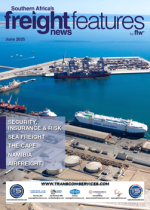South Africa ranks among the countries with the highest number of road fatalities annually – an alarming reality with profound economic consequences. “These losses are not just statistics,” said Carole Mtizi, transport economist at infrastructure, engineering and advisory practice Zutari. “The high incidence of road traffic crashes poses a significant risk to South Africa’s economic development and fiscal stability.”Estimates suggest the cost of road crashes to the economy is in the region of R164 billion per year, amounting to roughly 3.4% of the country’s GDP.According to the 2024 Zutobi Global Road Safety Study, South Africa was ranked as having the most dangerous roads in the world for the second consecutive year.“An estimated 24.5 road traffic deaths per 100 000 people occur annually, placing us among the countries with the highest fatality rates globally,” said Mtizi.Speaking at a recent Transport Forum on risk management and safety, Mtizi emphasised the significant economic burden of road crashes. “Hospitals across the country report that up to 60% of trauma cases in emergency departments are road crash-related. The Road Accident Fund pays out at least R43bn annually in claims.”She added that the damage to road infrastructure, along with mounting insurance and legal costs, painted a troubling picture.With freight transport in South Africa heavily reliant on road-based haulage, the impact of road crashes and congestion is particularly severe. “These incidents drive up the cost of logistics, disrupt supply chains, and ultimately result in higher prices for consumers, contributing to inf lation and reduced national competitiveness,” said Mtizi.Given the scale of both human and financial loss, Mtizi argued that road safety should no longer be viewed purely as a transport or public health issue but as a strategic economic imperative.“There is a strong case for introducing road safety as a preventative economic policy,” she said. “Reducing crash rates would not only ease the burden on our overextended public healthcare system, but also enhance the efficiency and reliability of logistics networks, which are critical to economic growth.”She emphasised that by prioritising safer roads, South Africa could improve freight reliability, reduce transport costs and stimulate investor confidence in supply chains, while also protecting lives. “In the long term, it’s a smart fiscal move,” she said.Mtizi added that targeted risk management solutions and proactive interventions were essential to achieving meaningful road safety improvements.“Stronger enforcement of traffic laws is imperative,” she told delegates. “This includes the consistent use of speed cameras, vehicle roadworthiness checks, seatbelt enforcement, and checkpoints to curb drunk driving. These are basic, but critical, elements of a functioning road safety framework.”She also stressed the importance of investing in safer infrastructure. “We need to upgrade our road networks through improved signage, lighting and clearly marked pedestrian crossings. Public-private partnerships aimed at enhancing key freight routes, such as those along the N3 Corridor, can also deliver tangible safety improvements.” LV

